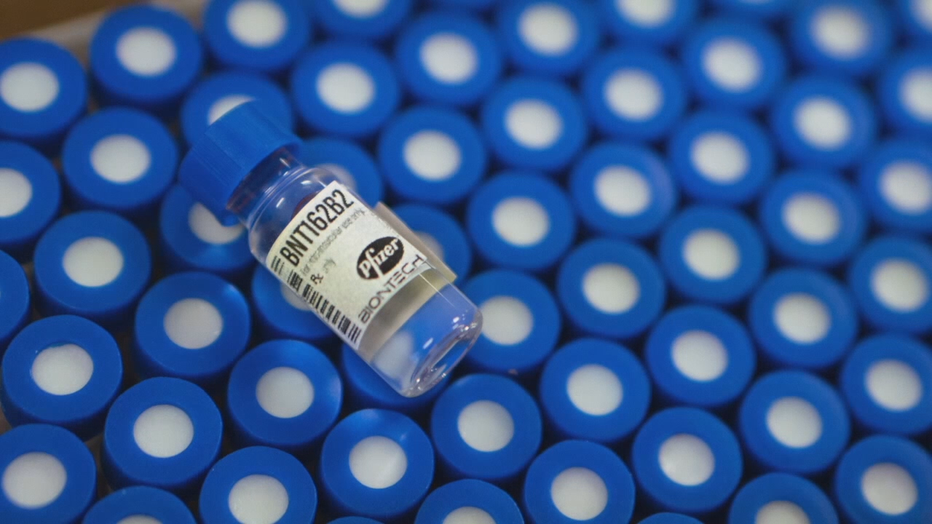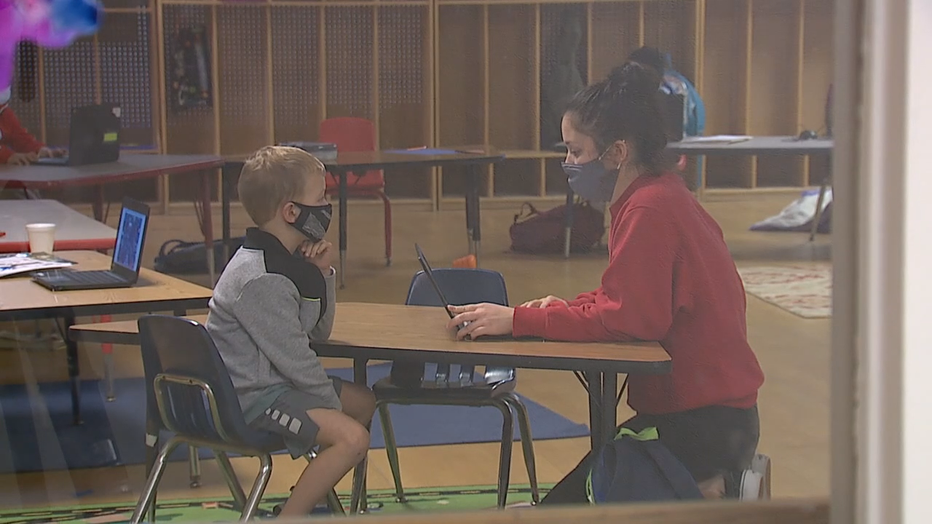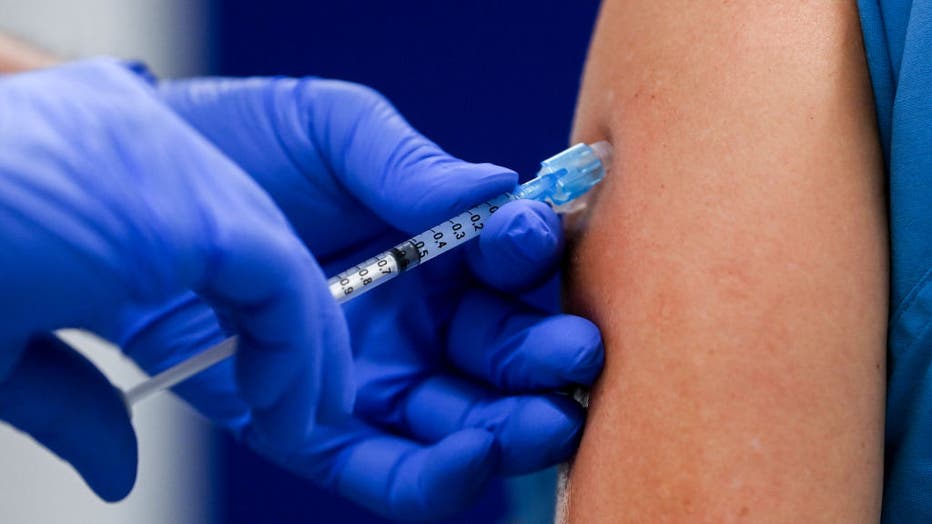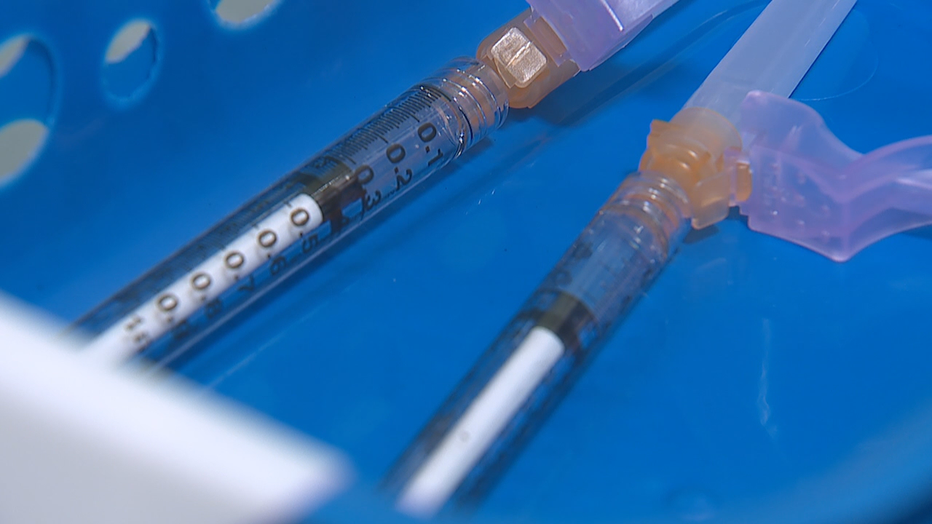Educators set to get vaccine in March, but state doses lag

Educators set to get vaccine in March, but state doses lag
Teachers and child care workers will be eligible for COVID-19 vaccine in early March, state health officials said Tuesday.
MADISON, Wis. - Teachers, child care workers, prisoners and grocery store workers will be eligible for COVID-19 vaccine in early March, state health officials said Tuesday.
The move will add hundreds of thousands of people to the eligibility rolls even though the state is still struggling to complete its first phase of inoculations. And there's no guarantee the state will have enough doses on hand by March to launch the next stage.
"We’re going to keep getting shots in arms as quickly as possible and as soon we have vaccines available," Gov. Tony Evers said in a statement.

The Department of Health Services (DHS) announced that educators and child care workers will be eligible about March 1. Those groups include all staff that work in public and private school programs, regulated child care, out-of-school programs, virtual learning support and community learning center programs.
All staff at Boys and Girls Clubs, YMCAs, preschools and Head Start programs will be eligible as well. So will college instructors and staff who have direct student contact.
Public-facing essential workers also will be eligible around March 1. That group includes 911 dispatchers, bus drivers, mink farmers and grocery workers. Workers who support health care infrastructure, residents and staff in shared housing situations such as condominiums, student dorms and prisons also will be eligible then. People enrolled in long-term care programs through Medicaid will be allowed to get shots, too.

Eighth-grade teacher and Wisconsin Education Association Council President Ron Martin is elated by the DHS announcement.
"It’s something we really advocated for," Martin said. "This is just one step in being able to move us closer to getting kids and families and communities back to normalcy."
FREE DOWNLOAD: Get breaking news alerts in the FOX6 News app for iOS or Android
Amy Mizialko, President of the Milwaukee Teachers Education Association, is eager for her shot -- as the state's largest school district remains in a distance learning model. Still, she is cautiously optimistic.
"We are excited about any progress that is being made toward eligibility for the vaccination but eligibility for vaccination does not necessarily equal availability for vaccination," Mizialko said.
All told, the expansion will make about 600,000 additional people eligible for the vaccine. Front-line health care workers, nursing home residents, firefighters, police, prison staff and anyone at least 65 years old are already eligible. But the state has been battling to get just those initial groups enough doses.
According to data from the Centers for Disease Control and Prevention, only 0.8% of the state’s overall population had gotten a shot as of Tuesday. Forty-four other states are ahead of Wisconsin’s pace.

(Photo by Hendrik Schmidt/picture alliance via Getty Images)
The health department's deputy secretary, Julie Willems Van Dijk, stressed during a conference call with reporters that the state had inoculated 362,505 people as of Tuesday, with nearly 70,000 getting their second dose. But she acknowledged things are moving too slowly. Just as Evers' administration has been doing since vaccination efforts began in late December, she again blamed the federal government for not allocating enough doses for Wisconsin.
She said the state is still receiving only about 70,000 doses per week and needs more than three times that amount every week to achieve the department's goal of inoculating 80% of the population by June.
She noted that tens of thousands of doses allocated to the state are in the hands of pharmacy chains CVS and Walgreens as part of an effort to inoculate staff and residents at nursing homes and assisted-living facilities and the state may consider taking back excess doses from the chain and redistributing them.
The Evers administration had hoped that President Joe Biden might free up more vaccine, but Van Dijk said the state hasn't received any indication from the president's administration that more vaccine could be on the way.

"Everywhere in the state, demand is higher than supply," Willems Van Dijk said. "Our vaccinators last week requested over double what we could give them. We have vaccinator capacity out there. We just need more (doses)."
With the vaccine still scarce, complaints from groups still waiting to be declared eligible grew louder on Tuesday.
Wisconsin Manufacturers and Commerce, the state's largest business group, ripped the state health department for putting prisoners ahead of factory workers. The group called the decision "disheartening" when manufacturers have been key to the state's COVID-19 response by producing personal protective equipment and medical supplies.
Van Dijk told reporters it makes sense to inoculate prisoners because they can infect guards and staff who in turn can infect outside communities.
Meanwhile, the number of new daily infections in the state continued a slow decline that began in early January. The health department reported 1,301 new infections Tuesday, the lowest daily total since September. The state has now seen 535,218 cases since the pandemic began. But 54 more people died, bringing the death toll to 5,753.
Associated Press contributed to this report.

Wisconsin DHS COVID-19 vaccine Q&A
Wisconsin health officials on Tuesday held a Q&A regarding the state's COVID-19 vaccine rollout and progress.
Featured
Lawmakers in state Senate to vote on repealing mask mandate
The Wisconsin Senate planned to vote Tuesday on repealing Gov. Tony Evers' statewide mask mandate.
Featured
UW Health offers perspective on 1 year of treating COVID-19 cases
A year ago this week, on January 30, 2020, UW Health saw a patient in the University Hospital’s emergency department who exhibited symptoms of a new virus.



